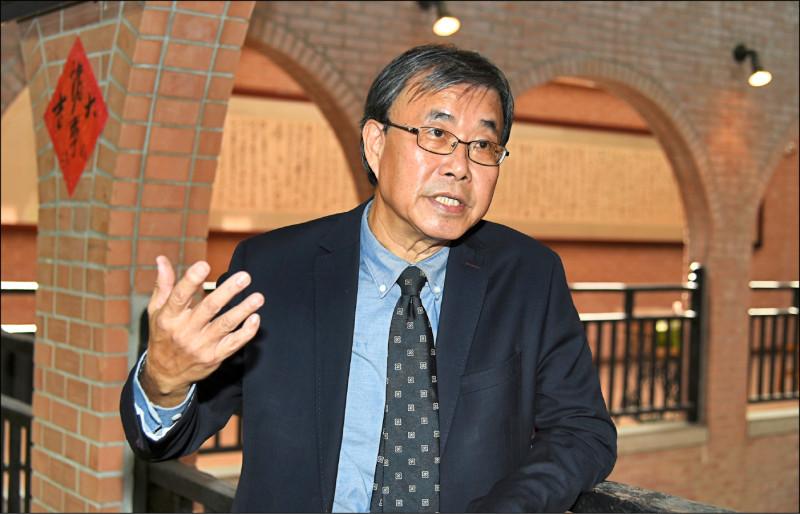Ministers today said that Chinese students should not be given early access to key technologies, as advances related to national security and the nation’s competitive advantages must be taken seriously.
The comments come after Premier Cho Jung-tai (卓榮泰) yesterday called the Ministry of Education to hold an inter-ministerial meeting about regulating the study of Taiwan’s key core technologies by students from China.
The meeting would gather agencies responsible for technologies vital to Taiwan’s national security and industrial competitiveness, leveraging their expertise to advise effective regulations and ensure national security, Cho said.

Photo: Taipei Times
Key technologies must be protected, Minister of Education Cheng Ying-yao (鄭英耀) said this morning.
To protect national security, any country must seriously consider how to prevent key technologies from being leaked, Cheng said.
As key technologies already require protection under intellectual property rights and patents, those involving national security and industrial development should have additional regulations, he said.
Minister of Economic Affairs J.W. Kuo (郭智輝) agreed that the government should protect domestic industries, and key technologies should not be leaked.
Moreover, if technology is related to national security, Chinese students should not be allowed early access to it, Kuo said.
Asked which technologies would be regulated, Kuo said that they would focus mainly on semiconductors, artificial intelligence, military industry, cybersecurity, and high-end information and communication technologies.
Another key area is the biotechnology and healthcare industry, which would be crucial for Taiwan's future competitiveness, he said.

Taiwan is stepping up plans to create self-sufficient supply chains for combat drones and increase foreign orders from the US to counter China’s numerical superiority, a defense official said on Saturday. Commenting on condition of anonymity, the official said the nation’s armed forces are in agreement with US Admiral Samuel Paparo’s assessment that Taiwan’s military must be prepared to turn the nation’s waters into a “hellscape” for the Chinese People’s Liberation Army (PLA). Paparo, the commander of the US Indo-Pacific Command, reiterated the concept during a Congressional hearing in Washington on Wednesday. He first coined the term in a security conference last

Prosecutors today declined to say who was questioned regarding alleged forgery on petitions to recall Democratic Progressive Party (DPP) legislators, after Chinese-language media earlier reported that members of the Chinese Nationalist Party (KMT) Youth League were brought in for questioning. The Ministry of Justice Investigation Bureau confirmed that two people had been questioned, but did not disclose any further information about the ongoing investigation. KMT Youth League members Lee Hsiao-liang (李孝亮) and Liu Szu-yin (劉思吟) — who are leading the effort to recall DPP caucus chief executive Rosalia Wu (吳思瑤) and Legislator Wu Pei-yi (吳沛憶) — both posted on Facebook saying: “I

The Ministry of Economic Affairs has fined Taobao NT$1.2 million (US$36,912) for advertisements that exceed its approved business scope, requiring the Chinese e-commerce platform to make corrections in the first half of this year or its license may be revoked. Lawmakers have called for stricter enforcement of Chinese e-commerce platforms and measures to prevent China from laundering its goods through Taiwan in response to US President Donald Trump’s heavy tariffs on China. The Legislative Yuan’s Finance Committee met today to discuss policies to prevent China from dumping goods in Taiwan, inviting government agencies to report. Democratic Progressive Party Legislator Kuo Kuo-wen (郭國文) said

The Ministry of Economic Affairs has fined Taobao NT$1.2 million (US$36,900) for advertisements that exceeded its approved business scope and ordered the Chinese e-commerce platform to make corrections in the first half of this year or its license would be revoked. Lawmakers have called for stricter supervision of Chinese e-commerce platforms and more stringent measures to prevent China from laundering its goods through Taiwan as US President Donald Trump’s administration cracks down on origin laundering. The legislature’s Finance Committee yesterday met to discuss policies to prevent China from dumping goods in Taiwan, inviting government agencies to report on the matter. Democratic Progressive Party